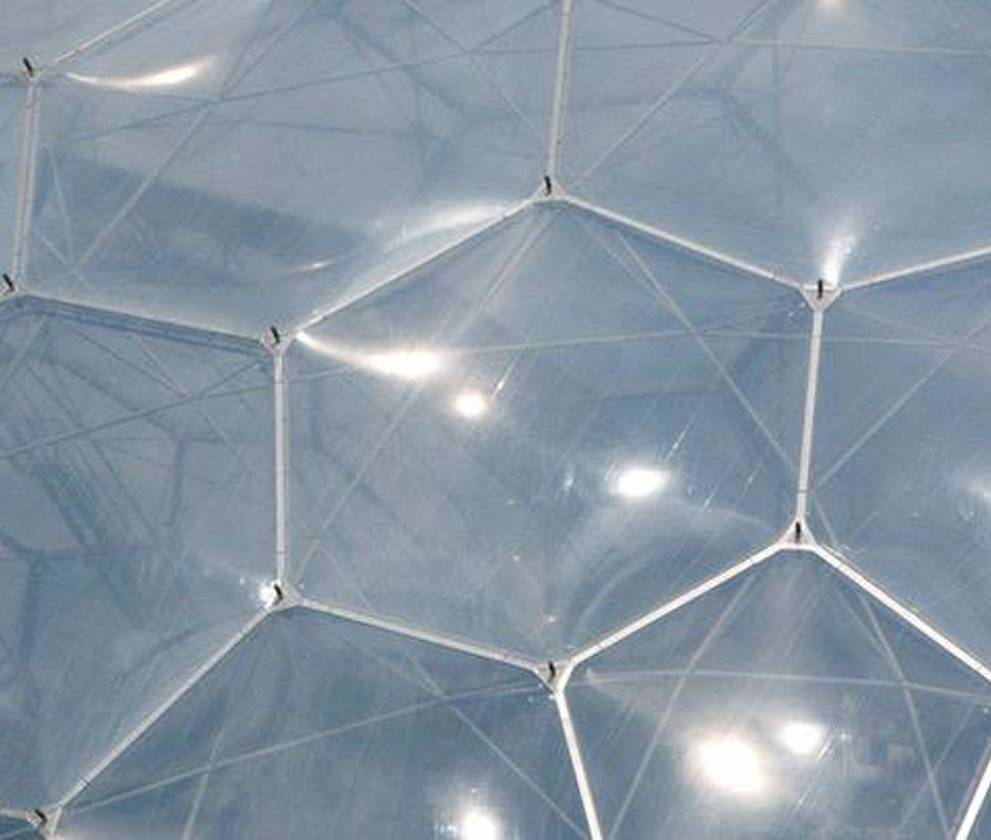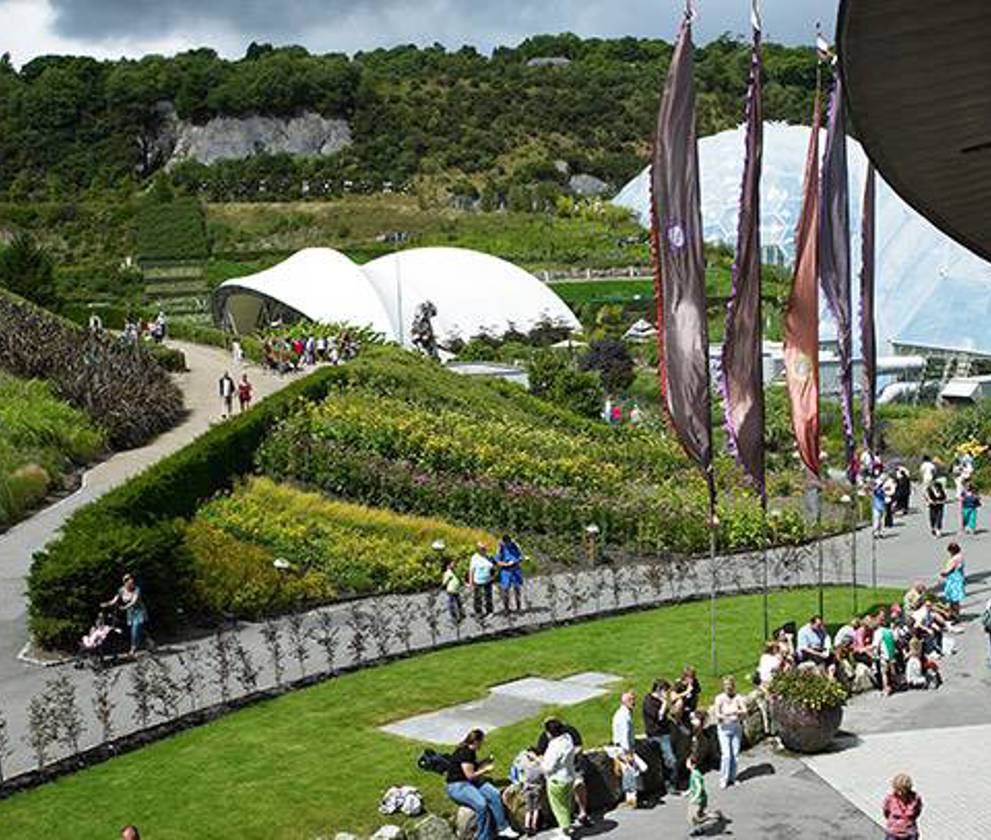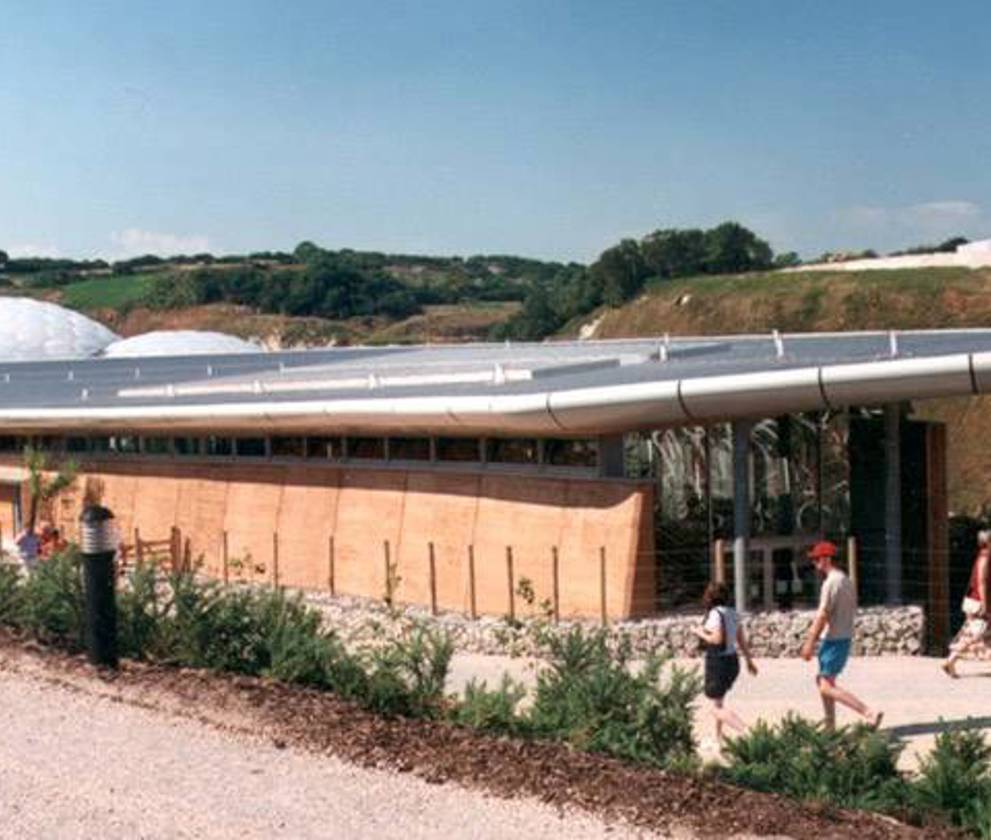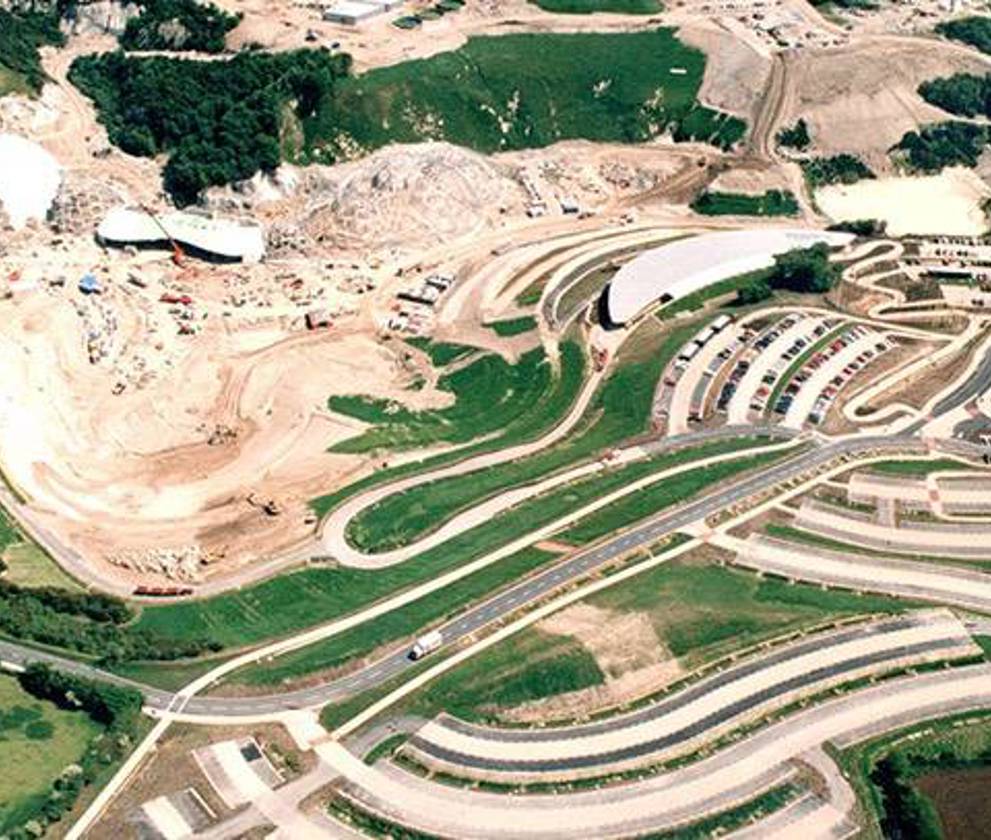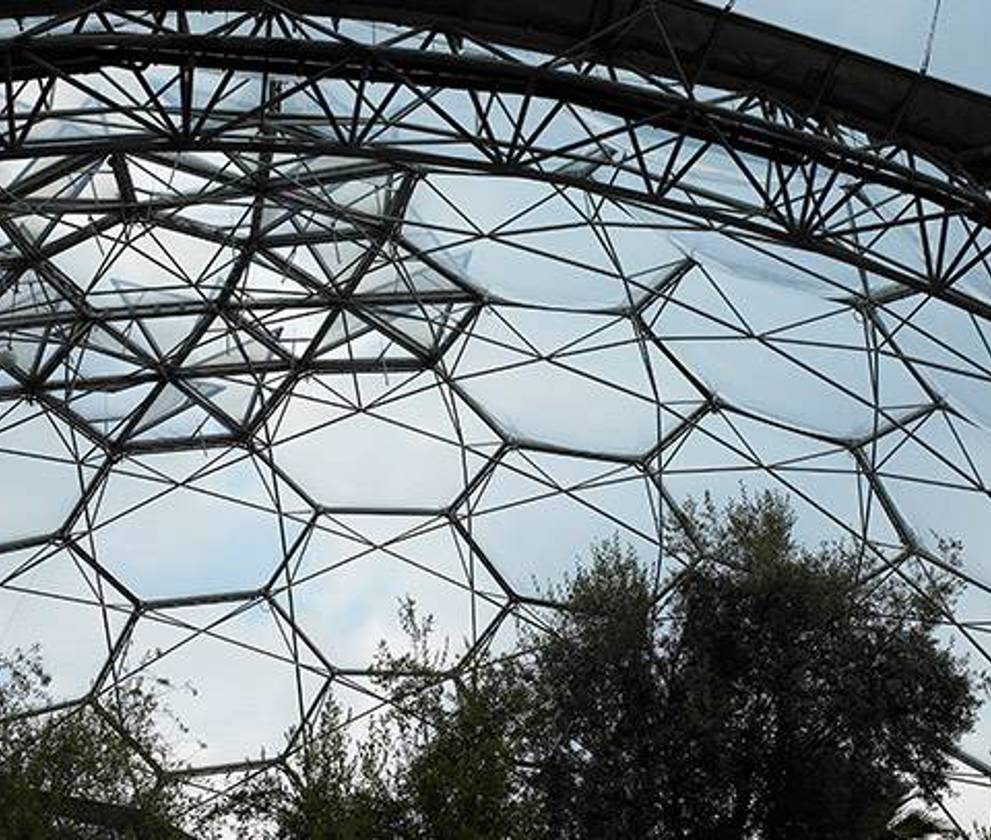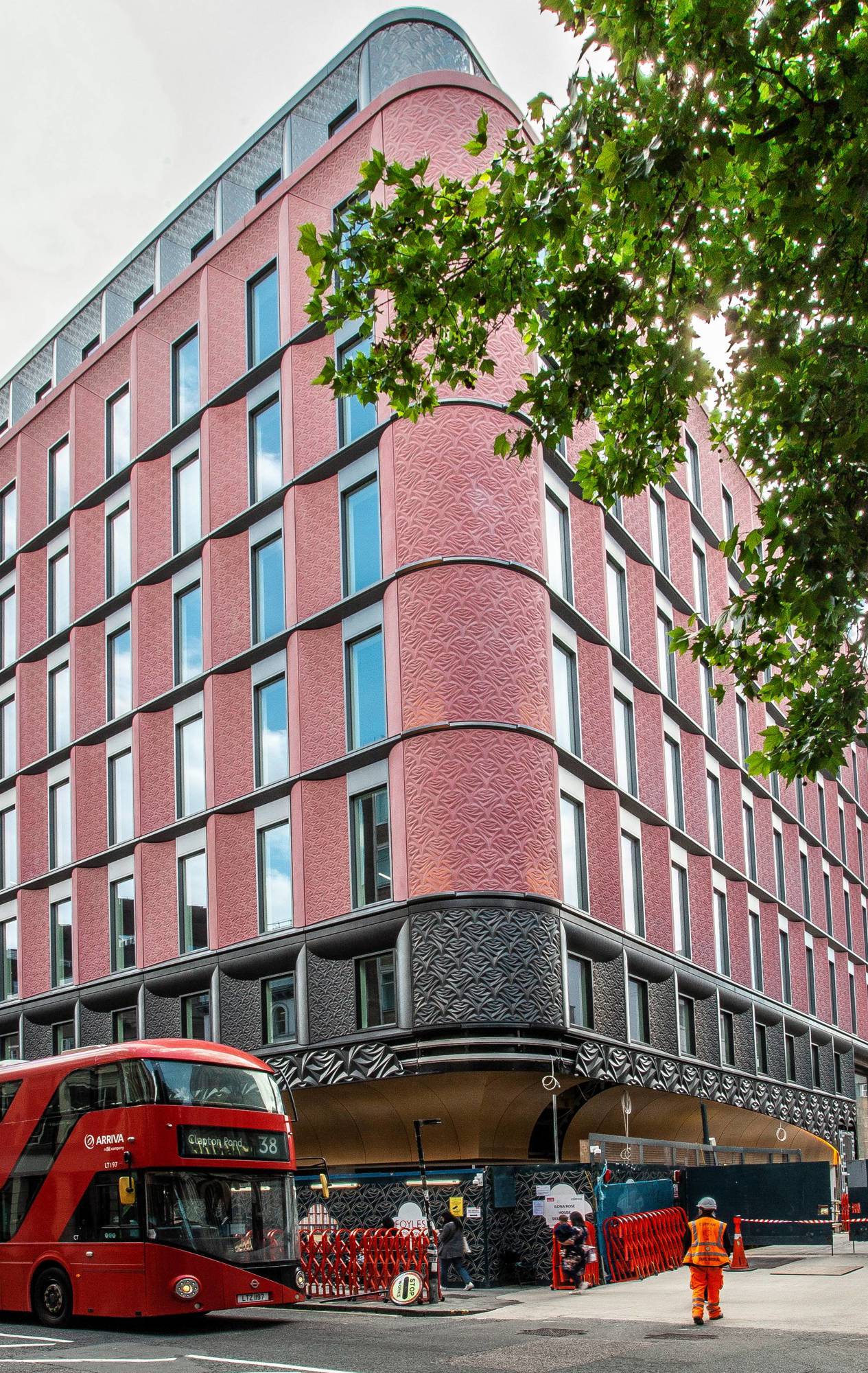- Client: Eden Project Ltd
- Sector: Leisure
- Value: £40m
- Region: South West
- Services: Pre-Construction, Construction
- Completion Date: 2006
From disused clay pit to a world-famous attraction
Chosen for our ability to construct the (near) impossible, we helped create one of the most ambitious gardens ever.
The Eden Project opened in 2001 to global acclaim – for its engineering, design and environmental credentials.
Part of the team that brought the attraction to life, we transformed what was a disused clay pit into the world’s largest indoor rainforest.
Constructing Eden's enormous geodesic domes required meticulous planning, 230 miles of scaffolding and a team of abseilers. We made sure sustainability, environmental design and waste management were built in every step of the way.
Since then, we’ve expanded facilities, creating an education centre and contemporary commercial office space.
A celebrated visitor destination, the Eden Project is now a key player in Cornwall’s economy, providing education and training across the region.
The McAlpine guys were brilliant because they were working under lights just about 24/7 producing the most beautiful industrial choreography you’ve ever seen. It was like Tonka Toy heaven seeing up to 60 guys working in machines. It was like a fantastic dance as they rebuilt a 1.5million tonne hillside and put stabilisation in within something like six weeks. It was amazing!
Sir Tim Smit Co-Founder, Eden Project
Project summary
Expertise
Record-breaking
The scaffold used to construct the biomes was the biggest that had ever been built, with 230 miles of poles.
Attracting investment
To bring the dream to life, we worked with project stakeholders and created a funding proposal. After brainstorming architectural and construction innovations, the biomes were proposed as a more cost-effective alternative to the original concepts.
Future-proofed offices
We constructed The Eden Institute offices space with recyclable materials and environmentally friendly products.
Preparing the land
Built on a disused clay pit, the site needed significant remodelling. After filling the quarry’s deeper parts, we moved and compacted 80,000m3 of fill to create the site’s dramatic crater profile.
Constructing the domes
Eden’s biomes cover more than 2.2 hectares. Their sheer scale made them one of the project’s major construction challenges. To construct the domes, we used what was the largest birdcage scaffold in the world. And once up, assailers scaled the sides to attach the inflatable panels.
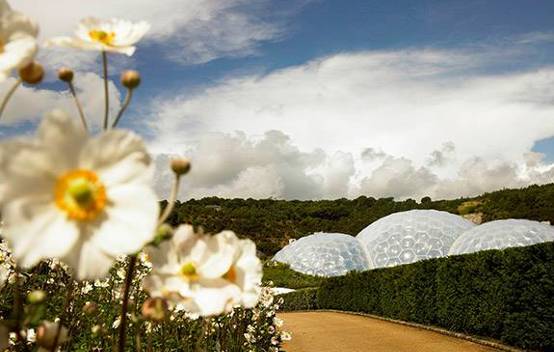
Sustainability
As well as managing and segregating site waste, we worked to minimise our impact on the local environment, community and wildlife.
We reduced site pollution and impact on local roads through shared transport, batching site deliveries and routing of project traffic.
We sourced site contractors, equipment and materials from the surrounding area where possible.
We also developed a drainage system filtering water into a series of enormous tanks, which enables Eden to recycle 80% of its water.
Awards
-
![DECORATIVE]()
Construction News: Quality in Construction Awards
Project of the Decade (2007)
-
![DECORATIVE]()
BCIA Awards
Major Project of the Year (2001)
-
![DECORATIVE]()
BCIA Awards
Best of the Best Building Project (2001)
Leisure projects
-
![The exterior of Ilona Rose House in London’s Soho district]() Read more about
Read more aboutThe construction of Ilona Rose House, London
Digital construction, complex temporary works and sustainable cladding solutions were key in delivering the striking new Ilona Rose House development in London’s Soho district.
Sectors: Commercial, LeisureRegion: London -
![Cyclists competing in an event at the velodrome inside the Emirates Arena]() Read more about
Read more aboutA sporting landmark for Glasgow’s regeneration
Sports arena and velodrome under one roof: The Emirates Arena is one of the largest, most versatile facilities of its kind in Europe.
Sectors: LeisureRegion: Scotland -
![Outside the O2 Arena at night.]() Read more about
Read more aboutRaising the roof at The O2
Working within an existing building, through ingenious engineering we overcame the major challenge of constructing and installing the arena’s 4,500-tonne roof.
Sectors: LeisureRegion: London
